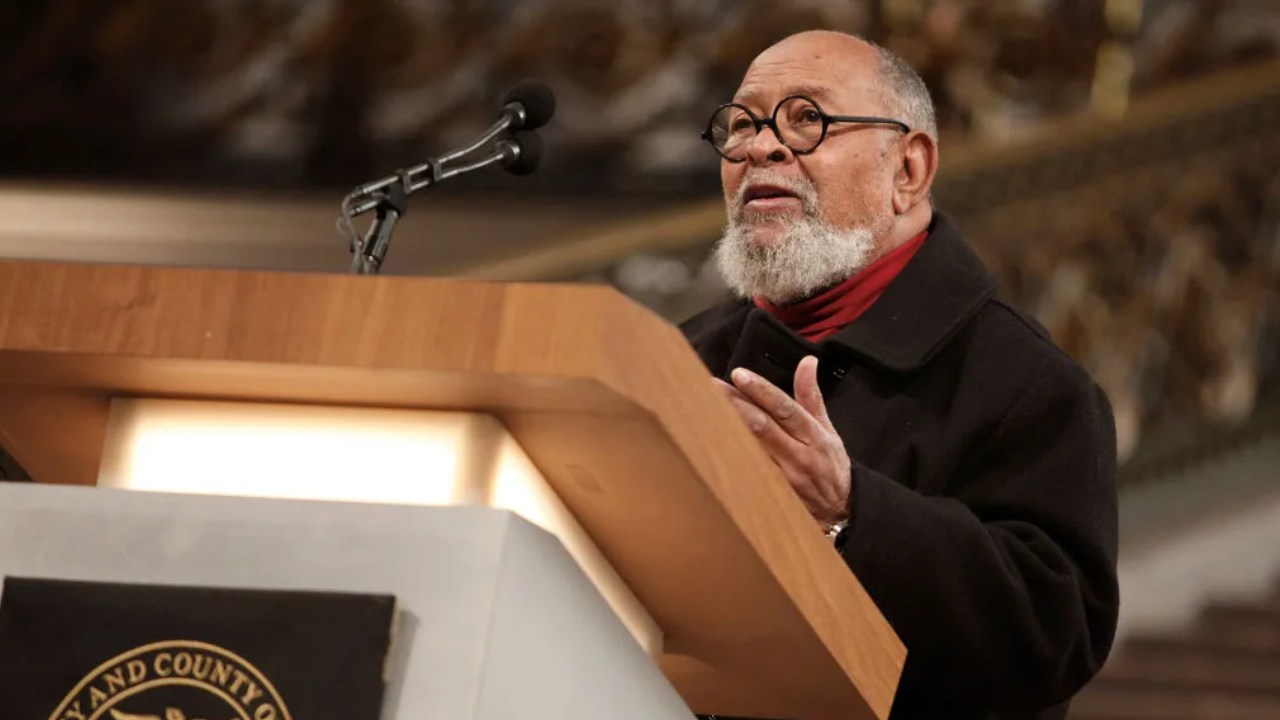The in-house police force at California’s institutions for the developmentally disabled is searching for a new chief as scrutiny of its work on criminal investigations intensifies.
After two years in the top job, Corey Smith received a demotion to second-in-command for the force, the Office of Protective Services. David Montoya, police commander at the Porterville Developmental Center, is serving as interim chief, according to the state Department of Developmental Services’ website.
The department, which oversees the centers and the police force, has repeatedly hired police chiefs with little to no background in law enforcement.
In its job posting, released Aug. 6, the department said applicants need “extensive management experience directing uniformed peace officers and investigative operations.” However, the posting does not detail how many years of police work or what level of education the next chief must have.
The personnel moves come as state lawmakers last week ordered the California State Auditor to examine the police force’s operations [PDF]. The Office of Protective Services is responsible for protecting nearly 1,700 patients with cerebral palsy, mental retardation and severe autism at five state-run centers in Los Angeles, Sonoma, Orange, Riverside and Tulare counties.
In an ongoing series of stories this year, California Watch has reported that detectives and patrol officers at the institutions routinely fail to conduct basic police work, even when patients die under mysterious circumstances.
Officers have delayed interviews with witnesses or suspects – if they have conducted interviews at all. In case after case, the force waited too long to collect evidence or secure crime scenes and has been accused of going easy on co-workers who care for the disabled.
Local
Terri Delgadillo, the department's director, did not respond to calls for comment or emails with written questions regarding the chief’s position.
Delgadillo selected the past three Office of Protective Services chiefs since becoming head of the Department of Developmental Services in late 2006. None of those hires had worked on criminal investigations for outside police agencies.
The first, Nancy Irving, was not even a sworn officer during her time as interim police chief in 2007 and 2008. Irving worked at the developmental services department for more than three decades as a labor negotiator and government manager, before and after her stint with the police force, until her retirement last year.
Jeff Bradley started as a security guard in 1998 and moved to the top of the force as an investigator and commander at the Lanterman and Porterville developmental centers. He succeeded Irving as chief in June 2008, but didn't keep the job long.
In February 2010, a Tulare County grand jury indicted Bradley for his alleged involvement in an overtime fraud scheme. A judge threw out the charges last year, saying investigators violated his rights under the California Peace Officers’ Bill of Rights.
Smith, named chief in 2010, spent most of his career as a firefighter at the Sonoma Developmental Center. He hadn’t worked on criminal investigations until 2006, when the department made him the Sonoma police commander, responsible for overseeing hundreds of cases each year.
It is unknown whether Smith stepped down by choice or by administrative force. He did not return calls for comment yesterday. On his voicemail message, Smith lists himself as supervising special investigator, one position below chief.
In response to California Watch’s reporting, Sen. Carol Liu, D-Glendale, introduced SB 1051, which includes a provision mandating that the Office of Protective Services chief have significant law enforcement experience. The legislation has passed the state Senate and awaits a vote on the floor of the state Assembly.
Liu declined to comment on the developmental center police force’s hiring standards. “She needs to talk to the department first,” said Robert Oakes, Liu’s spokesman.
Based on the published job requirements, Smith’s successor is likely to come from another state agency, rather than a city or county police department.
Applicants should be current state employees, or have worked previously for the Legislature or governor, or have been honorably discharged from the U.S. military, the posting said. Officers at city or county law enforcement agencies can be hired only through a bureaucratic process called an “interjurisdictional exchange.”
The exchanges take place when state agencies trade employees or one agency loans an employee to another department for a set period of time, according to the California personnel operations manual. And employees from local governments “gain no status in the California state service” while on loan to the state agency.
Tom Simms, a retired police chief who led the Roseville and Santa Rosa departments, said the requirement would eliminate the most qualified applicants from consideration.
If the Department of Developmental Services hires its new chief from the ranks of a city police agency, he or she would not become a state employee and would not earn retirement benefits.
“Oh yeah, that’s really going to encourage people to come up,” said Simms, who examined the developmental center force a decade ago for the state Department of Justice.
Simms and Loren DuChesne, former chief of investigations for the Orange County district attorney, in 2002 wrote a report on widespread problems within the Office of Protective Services. The report recommended the department “recruit and hire a highly qualified and experienced law enforcement candidate” for police chief.
Every commander, detective and patrol officer at the developmental centers underwent retraining in June. State officials, including Smith, also have been writing new policies and practices to upgrade the force’s criminal investigations.
Montoya, the interim chief, started his law enforcement career with the Visalia Police Department in 1988, according to an Office of Protective Services internal memo.
He spent 13 years with the Tulare County Sheriff’s Office, rising to the rank of sergeant, before joining the state Department of Mental Health as an investigator at Coalinga State Hospital in Fresno County.
View this story on California Watch
This story was produced by California Watch, a part of the nonprofit Center for Investigative Reporting. Learn more at www.californiawatch.org.



